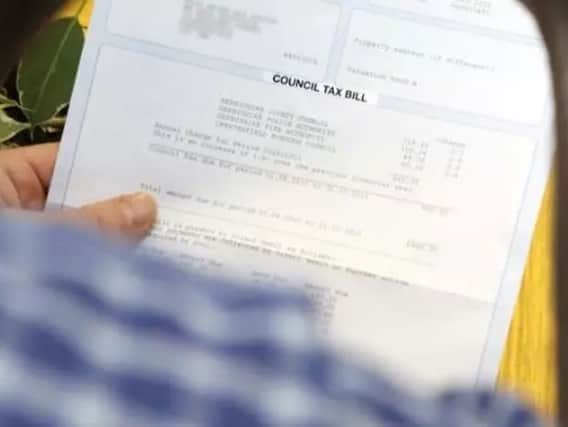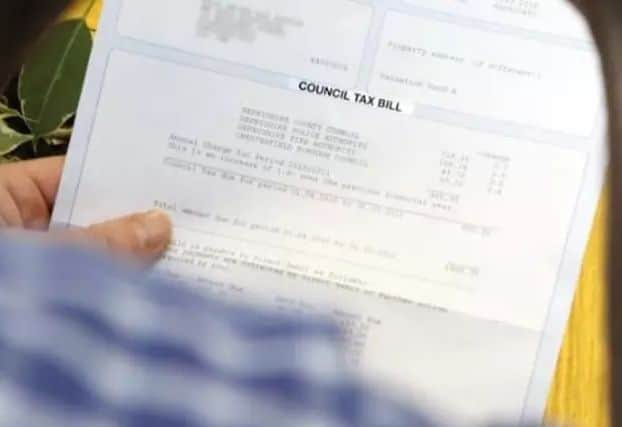Council tax could be scrapped in Yorkshire and this is how changes would affect you


The Institute for Public Policy Research (IPPR) said homeowners would pay annual property taxes proportionate to the current market price of their homes under its suggestions.
It claimed housing is currently "undertaxed" relative to other assets, distorting investment behaviour and contributing to wealth inequality between those who own a home and those who do not.
Advertisement
Hide AdAdvertisement
Hide AdA property tax rate of 0.5% would mean an annual tax bill of £1,243 for the owner of an averagely priced UK home valued at £248,611, it said.


The think tank claimed if the new property tax was set at 0.5% it would raise at least as much as current council taxes. A higher rate would be needed to replace the revenue currently raised from the stamp duty paid by people buying a home.
It argued the change alongside a package of other proposed measures could help to tackle wealth inequality in the UK. Carys Roberts, senior economist at IPPR, said: "Council tax is a regressive tax as it falls disproportionately on those with lower incomes and wealth. "It's also outdated, as it's based on valuations that have not been updated since 1992.
"A new property tax would be far more progressive, and would effectively capture increases in house prices in a way the current system does not." Property owners have seen their wealth and income grow, while rising numbers are locked out of home ownership and must pay increasingly high rents, according to the IPPR.
Advertisement
Hide AdAdvertisement
Hide AdIt said since 1997, average house prices have increased four times faster than average full-time earnings. A property tax would capture some of these financial gains, while also dampening future house price inflation, it argued. There could be some local discretion to vary the tax and a homeowner with a high-value property but low income could defer payment until their property is either sold, or left on death as part of their estate, the IPPR said.
Who currently has to pay Council Tax?
You’ll usually have to pay Council Tax if you’re 18 or over and own or rent a home.
A full Council Tax bill is based on at least 2 adults living in a home. Spouses and partners who live together are jointly responsible for paying the bill.
You’ll get 25% off your bill if you count as an adult for Council Tax and either: you live on your own no-one else in your home counts as an adult
Advertisement
Hide AdAdvertisement
Hide AdYou’ll usually get a 50% discount if no-one living in your home, including you, counts as an adult.
You won’t have to pay any Council Tax if everyone in your home, including you, is a full-time student.
What does Council Tax pay for?
Council Tax is a tax on domestic property which was introduced in 1993 by the Local Government Finance Act 1992, replacing the short lived Community Charge, which in turn replaced the domestic rates.
Each property is assigned one of eight bands (A to H) based on property value, and the tax is set as a fixed amount for each band. Some property is exempt from the tax, some people are exempt from the tax, while some get a discount. In 2011 the average annual levy on a property in England was £1,196 per year.
Advertisement
Hide AdAdvertisement
Hide AdIn 2014–15 the tax raised enough money to cover 24.3% of council expenditure. Council tax is difficult to avoid or evade and therefore has one of the highest collection rates of any tax, with in-year collection rates of 97.0% in 2014–15.
Council tax pays towards local services such as councillors, bin collections, road repairs, recycling centres and other local government responsibilities.